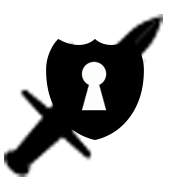In today’s digital age, password security has become an essential part of our daily lives. With the mind-boggling number of online accounts we create, it is more crucial than ever to maintain strong passwords. Many of us still do not realize the importance of good password security, which puts you at risk of cyber attacks. Password security is your first line of defense in protecting yourself against getting hacked. This article will explain why this is and what you can do about it.
Let’s start by defining what password security is. It is the practice of creating and maintaining strong passwords. Passwords are the first line of defense in protecting your personal and financial information from hackers. However, many people still use weak, easy-to-guess passwords like “password123” or “qwerty.” Weak passwords can be easily cracked by cybercriminals, leaving your personal and financial information at risk.
Here is another common mistake made with poor password security, reusing them in multiple places. Equally as bad, using variants of the same one. The latter does very little to stop hackers. Hackers have tools to check for variances once a password is cracked. Are you making this mistake? You’re not alone seeing as 65% of respondents in a study done by LastPass said they reuse the same password.
How And Why Passwords Are Hacked
Hacking a password (also referred to as password cracking) is the act of attempting to guess the correct password for login. Cybercriminals have a plethora of tools they can use to assist with this. Generally, the process is for them to purchase or other obtain leaked website usernames from the dark web. With this, they attempt to brute force the password until one succeeds.
If they succeed in finding a working password, it’s off to the races. The cybercriminal will now try these same credentials on multiple sites. Their goal? To collect as much information about you as they can. To combat this, make sure you have good password security and multi-factor authentication (MFA) enabled across your accounts!
Create Strong Passwords
Strong password security involves rethinking how you create passwords. The old way of thinking was that a strong password should be around 12 characters long and contain a mix of upper and lowercase letters, numbers, and special characters. Funny enough, the tools of cybercriminals are now optimized for hacking this style of password. Instead, try a sentence or phrase combined with a word or two with upper case letters and special characters. Examples of this would be: “My love for CyberS3curity runs deep.” Yes, believe it or not, you can use sentences like this for passwords!
This is significantly harder to hack and is better for you. It allows you to choose something more personal that is easier to remember. Hacking passwords like this is harder for hackers because now they need to hack a series of words with unknown spacing and character variety. Your password should not contain any easily guessable information like your name or anything about you easily found online. Obviously, never use the same password for multiple sites and accounts. If a hacker gains access to one account with your password, they could potentially access all of your accounts.
Change Your Password Regularly
You should also regularly change your password about every 6 months to a year. But I know you probably won’t. The following is something I recommend instead and will be easier for you to confront. First, use a password manager like 1Password to store and manage your password. Most password managers come with dark web monitoring. Dark web monitoring will check the dark web to see if any of your passwords have been compromised. You then only change the passwords for breached accounts.
Going this route is a lot more confrontable than changing all your passwords every 6 months. Just keep in mind that it’s possible a breach has occurred that does not show up in the tool. When you use a password manager to create new passwords for all your logins, the fallout of a data breach will be significantly reduced.
Memorize Only Two Passwords
Strong password security sometimes means having less to worry about. A great benefit of a password manager is you can memorize only the password for the manager itself. Once you log in, it memorizes everything else!
The other password you should remember and change periodically is the password to your device itself. Whether a cell phone or computer, do change this periodically. You most likely do everything on these devices so ensuring you do everything you can to keep hackers on their toes is a must. Even better, but beyond the scope of this article, secure such devices with two-factor hardware authentication like a Yubikey.
This all means there are really only two passwords you need to memorize. The one for your device and the one for your password manager. These are also the two passwords you should make sure to change periodically for the optimum balance of security and ease of use.
Be Wary Of Scams
Finally, be weary of phishing scams. We will cover this in more detail in another article, but these are emails or websites designed to steal your personal information. They will often mimic legitimate sites like a bank or insurance company and attempt to fool you into giving away your login credentials. They will then, in turn, use that information to log in themselves to the real thing and steal your information, your money or commit fraud.
All this is why strong password security is your first line of defense in protecting your data online. It can seem trivial at first, a thing that will never happen to you, but statistically, it is. The potential damage and fallout of a breach can leave you wishing you had taken what measures you could. No matter how vigilant you are there is no 100% guarantee it won’t happen to you, but by taking the actions above you can significantly reduce your risk without significant compromise to your online ease of use.

